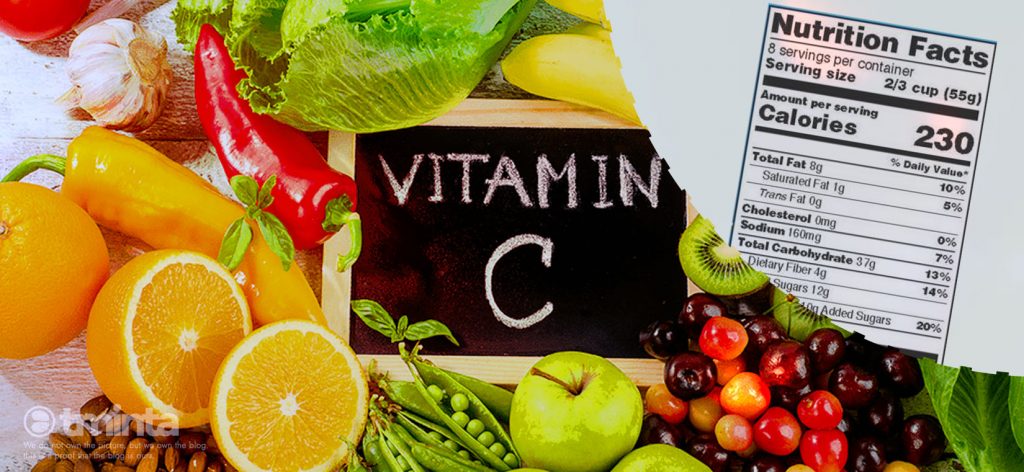FACTS ABOUT VITAMIN NUTRITION LIFESTYLE YOU MUST KNOW

Must know about vitamins nutrition in MALTA
Vitamins
These are organic compounds we require in tiny amounts. An organic compound is any molecule that contains carbon.
It is called a vitamin when our bodies cannot synthesize (produce) enough or any of it, so we need to get it from our food.
Vitamins are classified as water soluble (they can be dissolved in water) or fat soluble (they can be dissolved in fat). For humans, there are four fat-soluble vitamins (A, D, E, and K) and nine water-soluble vitamins (eight B vitamins and vitamin C).
Water-soluble vitamins need to be consumed more regularly because they are eliminated faster (in urine) and are not easily stored.
Fat-soluble vitamins are absorbed through the intestines with the help of fats (lipids). They are more likely to accumulate in the body because they are harder to get rid of quickly. If too many vitamins build up, it is called hypervitaminosis. A very low-fat diet can affect the absorption of fat-soluble vitamins.
We know that most vitamins have many different functions. Below is a list of vitamins, and some of their roles. Note that most often vitamin overdose symptoms are related to supplementation or impaired metabolism or excretion, not vitamin intake from foods. In Malta we may tend sometimes take vitamins for granted, but they should be taken into consideration carefully.
Vitamin A
Chemical names – retinol, retinoids, and carotenoids.
Solubility – fat.
Deficiency disease – Night-blindness.
Overdose disease – Keratomalacia (degeneration of the cornea).
Vitamin B1
Chemical name – thiamine.
Solubility – water.
Deficiency disease – beriberi, Wernicke-Korsakoff syndrome.
Overdose disease – rare hypersensitive reactions resembling anaphylactic shock when an overdose is due to injection.
Vitamin B2
Chemical name – riboflavin.
Solubility – water.
Deficiency disease – ariboflavinosis (mouth lesions, seborrhea, and vascularization of the cornea).
Overdose disease – no known complications. Excess is excreted in urine.
Vitamin B3
Chemical name – niacin.
Solubility – water.
Deficiency disease – pellagra.
Overdose disease – liver damage, skin problems, and gastrointestinal complaints, plus other problems.
Vitamin B5
Chemical name – pantothenic acid.
Solubility – water.
Deficiency disease – paresthesia (tingling, pricking, or numbness of the skin with no apparent long-term physical effect).
Overdose disease – none reported.
Vitamin B6
Chemical names – pyridoxamine, pyridoxal.
Solubility – water.
Deficiency disease – anemia, peripheral neuropathy.
Overdose disease – nerve damage, proprioception is impaired (the ability to sense where parts of the body are in space).
Vitamin B7
Chemical name – biotin.
Solubility – water.
Deficiency disease – dermatitis, enteritis.
Overdose disease – none reported.
Vitamin B9
Chemical name – folinic acid.
Solubility – water.
Deficiency disease – birth defects.
Overdose disease – increased risk of seizures.
Vitamin B12
Chemical names – cyanocobalamin, hydroxycobalamin, methylcobalamin.
Solubility – water.
Deficiency disease – megaloblastic anemia (a defect in the production of red blood cells).
Overdose disease – none reported.
Vitamin C
Chemical name – ascorbic acid.
Solubility – water.
Deficiency disease -scurvy, which can lead to a large number of complications.
Overdose disease – vitamin C megadose -diarrhea, nausea, skin irritation, burning upon urination, depletion of copper in the body, and higher risk of kidney stones.
Vitamin D
Chemical names – ergocalciferol, cholecalciferol.
Solubility – fat.
Deficiency disease – rickets, osteomalacia (softening of bone), recent studies indicate higher risk of some cancers, autoimmune disorders, and chronic diseases
Overdose disease – hypervitaminosis D (headache, weakness, disturbed digestion, increased blood pressure, and tissue calcification).
Vitamin E
Chemical name – tocotrienols.
Solubility – fat.
Deficiency disease – very rare, may include hemolytic anemia in newborn babies.
Overdose disease – dehydration, vomiting, irritability, constipation, build up of excess calcium.
Vitamin K
Chemical names – phylloquinone, menaquinones.
Solubility – fat.
Deficiency disease – greater tendency to bleed and bruise.
Overdose disease – may undermine effects of warfarin.
Most foods contain a combination of some or all of the seven nutrient classes. We require some nutrients regularly, and others less frequently.
Conclusion
Are you up for change? Start today, by trying to limit your intake by reducing excess or increase any deficiencies in your nutrition. It is important to always read nutritional information and ingredients of each product you consume. There may be some ingredients which are not suitable for you and could leave a negative impact on your body. Take into account other additional extras which are added, such as sauces, flavors, coloring, sweetener or sugar since often we leave them out of thought. Remember always to keep hydrated, and drink water as much as you can since in Malta our weather is usually warm, therefore more water is lost from our body. Try to avoid items such as long expiry dates since they would have additives in order for them to keep good for consumption.
There are various foods or drinks in the market which one differ from the other and have different nutrition information and ingredients. See what is best for you and what fits with you nutrition choice,
If you don’t know how, at Tminta you can find various professionals whom may guide you to make a balanced diet which includes the daily requirements for your body. There are also some tests which one could take such as food intolerance test or blood tests which may even guide you better. Always consult your doctor for guidance since it would be more personalized advice. When making changes try to change little everyday and not everything at one go, so that your body will have time to adapt to the change.
We wish you a healthy lifestyle and hope the above points help you better understanding the effects of nutrition and vitamins when consuming in food or drinks.